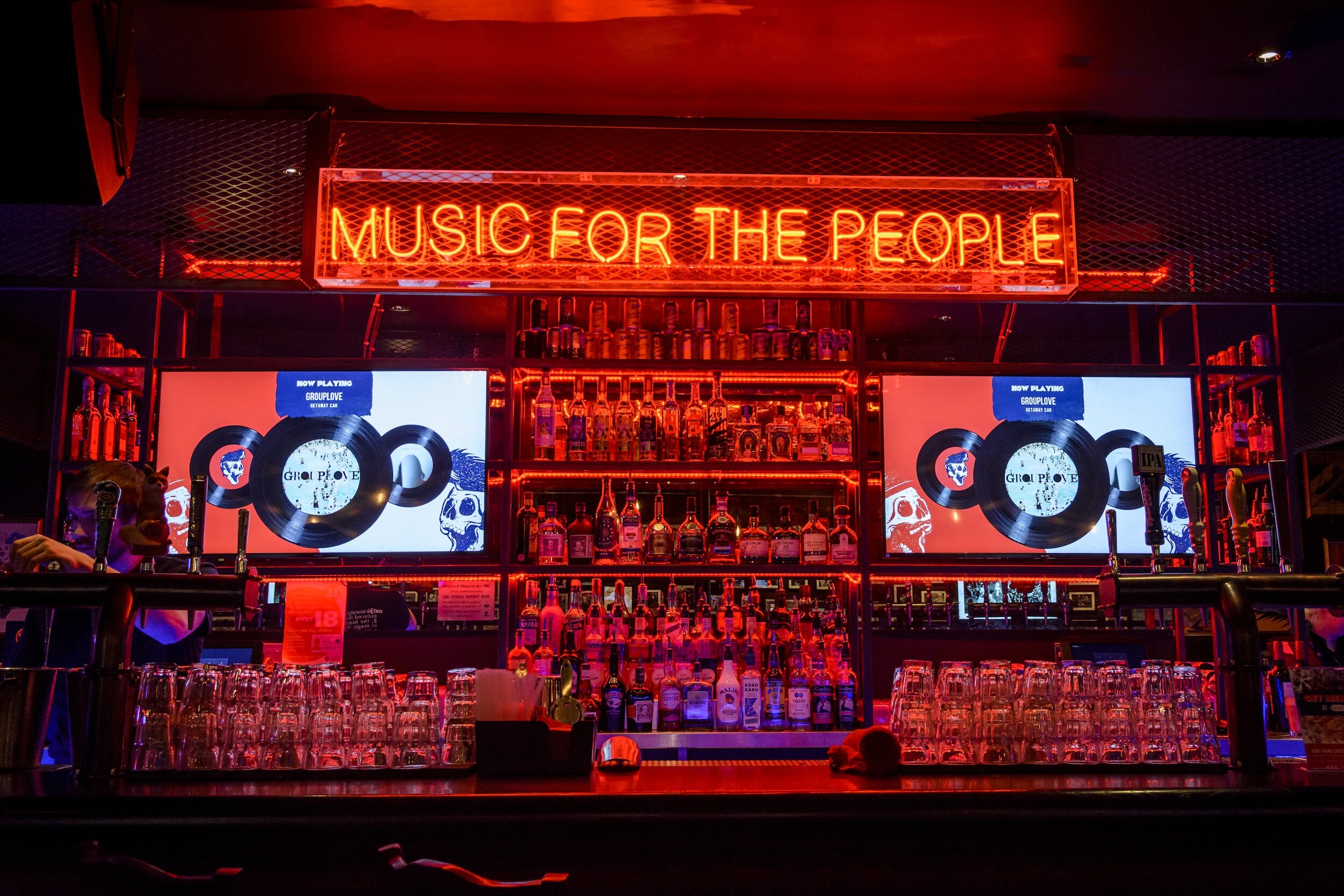Meeting audiences where they're at
Most musical groups have learned the wisdom of bringing performances to the people, and because of this I’ve enjoyed hearing classical music in many unexpected places. Yet nothing prepared me for the joy of listening to cutting-edge chamber music played in a bar in the small city of Appleton, Wisconsin. Presented by Decoda—the only independent ensemble recognized as an affiliate ensemble of Carnegie Hall—the program featured freshly-composed pieces and unfamiliar performance techniques. Many would believe this to be a guaranteed flop, yet the audience of Old-Fashioned-swilling listeners loved every bit of it. Instead of being repelled, they leaned in, knowing they were important participants in the communication between performers and listeners. And after the last note had been played, the musicians didn’t disappear into back rooms. Instead, they joined their fans at the bar, while Michael Mizrahi (the festival director) cut and served cake to anyone who wanted a piece.
What stayed with me after that night was the magic of music played at the highest level, and musicians who knew that their job was more than just the notes.This was a group that internalized the axiom, “meet people where they’re at.” There was no snobbery, no distance, just great music shared with love and humility. I don’t think this was because of the booze (although that might have helped) and I don’t think it was because of the setting; I think it happened because the musicians themselves knew the importance of breaking down the invisible walls that too many classical players and groups erect between themselves and their listeners. They respected their listeners, and their playing was a form of communication, not dictation. I found it refreshing and memorable because I so rarely encounter it.
Audiences may not be highly educated about everything classical musicians perform, but neither are they stupid. When performers assume condescending attitudes, listeners know it. It shows up in our playing, something I discussed in the post Play like you give a damn! It shows up in our programming and in how we address the audience from the stage. Listeners find themselves subtly lectured to, not invited into a musical relationship. And they resent it. As one friend stated bluntly, when he feels lectured to, he “doesn’t give a s**t” about listening to the music being played.
What I find astonishing in this era when arts organizations are struggling to survive is that so many of us still expect audiences to meet our needs and expectations rather than asking listeners what they themselves prefer. New classical music is particularly guilty of this. Pieces are commissioned on the basis of a certain style or ideology with little attention paid to whether it’s of interest to listeners. Worse yet, when audience pushback occurs, we blame the listeners for being too “stupid” or “closed-minded” to understand what we presented. And we do this with an inflated sense of righteous superiority, never considering whether the audience might have understood the music quite well and that they just didn’t like it!
This is a recipe for extinction. When we assume an air of superiority, we erect a wall. When we moan about the uneducated masses who attend today’s concerts, we erect a wall. When we criticize the musical preferences of the “great unwashed,” we erect a wall. When audiences resist the music we play, we dismiss them as ignorant (or worse). We push our musical (and in recent years, social) agendas on our audiences and are incensed when they dare to disagree. And then, we sit in our pure and pristine ivory towers where we think the right thoughts, play the right notes in the right way, and we wonder why just a handful of right-thinking acolytes choose to listen to what we present.
In fairness, classical music isn’t alone in complaining that audiences aren’t what they used to be. People come to concerts (if they come at all) with little or no understanding of how to behave and little or no attention spans. But few classical music lovers dare face the ugly truth: complaining about this does nothing to change it. We’re living in a world of “likes” “tweets” and soundbites, not the 19th century. We’re living in societies that have obliterated funding for arts education, the place where our citizens once learned concert etiquette and how to appreciate classical music. These are things we can’t control. Our job is to work within the reality of what is and to bring people the best music we’re capable of sharing, regardless of the setting. In other words, our job is to meet people where they’re at.
Meeting audiences where they’re at doesn’t mean “dumbing down” the music. And it doesn’t mean abandoning the traditional concert hall and time-honored concert traditions. It means bringing the highest quality music we’re capable of creating to listeners with the eagerness of lovers, dropping all sense of hierarchy and playing with the knowledge that to present music to others—in any setting—is a privilege. To have people give our music their time and attention is a gift, not an obligation, and one for which (in this era of dwindling concert attendance) we should be grateful to receive. As musicians, we’re blessed with the chance to share something beautiful with listeners in a language deeper than words. Communicating this beauty without self-erected walls is our mandate, regardless of whether we’re in a bar or a concert hall. When we do this, the music does the rest.
Photo by Steve Harvey, courtesy of UpSplash
